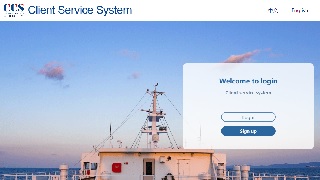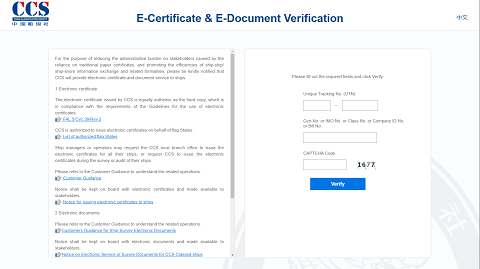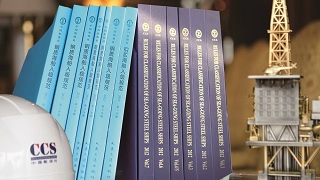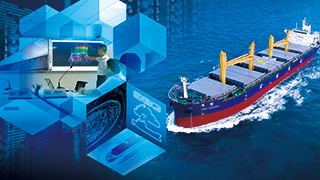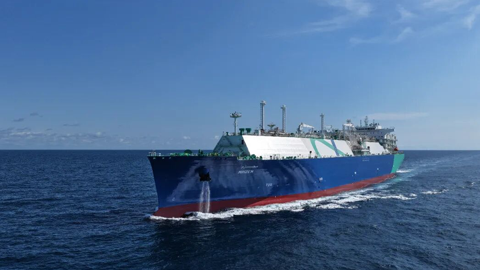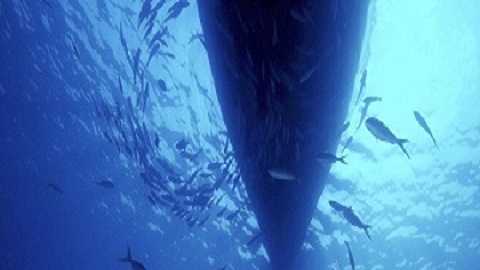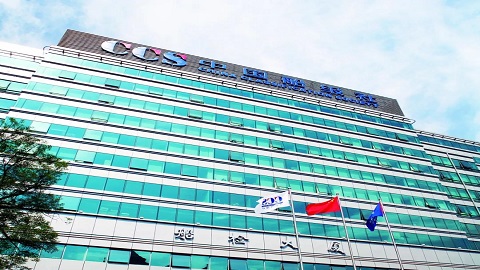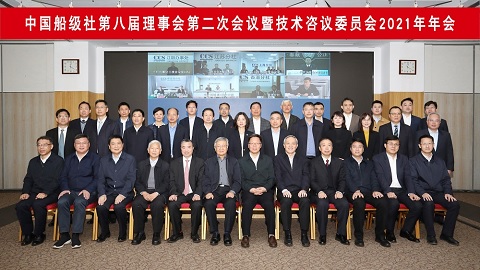By Zhu Chuanyu, Tang Aipan, Cao Boran and Ling Aijun, CCS Offshore Engineering Technology Center

At present,offshore oil fields,intelligent manufacturing, intelligentization of offshore engineering equipment and digital twins have become hot spots in the industry . As the main unit for offshore oil production, FPSO needs to operate in a fixed area on the sea for a long time, and cannot be docked for survey and maintenance like the ordinary ships . Relying on the technologies such as intelligence and digital twins, an FPSO digital system is constructed to collect and analyze the FPSO model parameters, monitoring data, and survey data, so as to achieve the real-time management, early warning, and risk assessment of FPSO assets, improve the asset management capabilities and ensure the asset security of FPSO .
At present , the digital rules for ships and offshore installations are in the infancy of development, with most rules and guidelines focusing on the ship field . However, no rule is available for the offshore installations, especially the FPSO digital requirements for offshore oilfield development . With the development of FPSO digital technology, it is urgent to develop the relevant rules and guidelines, so as to ensure the safety of digital technology applied to FPSO by standardizing the development of FPSO digital technology, and guide the development direction of digitalization technology of FPSO with the requirements of the rules and guidelines .
Technical analysis of digitalization rules and guidelines for offshore engineering
1. Technical analysis of Guidelines for Verification of Digital Systems for Ships and Offshore Installations
The Guidelines for Verification of Digital Systems for Ships and Offshore Installations , as the basis of digital systems, specify the comprehensive requirements for digital systems on the basic level, standardize the technical framework, indicators, signs and models in the process of data generation, transmission and application, and improve the standardization of industry data . The Guidelines are generally applicable to ships and offshore installations .
2. Technical analysis of the Guidelines for Digital Twin of Ships and Offshore Installations
The Guidelines for Digital Twin System of Ships and Offshore Installations specify the functional capability evaluation system for the digital twins system . As the first guiding document in the industry for the application of digital twin technology, the Guidelines point out a direction for the application of digital twin technology in ships and offshore installations .
3. Technical analysis of the Guidelines for Survey of Structure and Equipment Monitoring System of Mobile Platform and Offshore Installations
Structure and equipment safety is the fundamental requirement for FPSO operation . Based on the actual engineering experience, CCS has compiled the Guidelines for Survey of Structure and Equipment Monitoring System of Mobile Platform and Offshore Installations, which is applicable to FPSO structure and equipment safety .
Research progress on digital system requirements of FPSO classification rules
Based on the above guidelines, the basic requirements of the digital system, the technical requirements for digital twin system, technical monitoring and inspection requirements for offshore installations are clarified . However, the rules requirements for intelligent lighting systems, intelligent assembly and loading systems, and data centers are still blank for the FPSO oil and gas production-related systems .
CCS Offshore Engineering Technology Center has studied the relevant technical and rules requirements of the FPSO digital system based on the experience of scientific research and engineering projects in recent years, the existing digitalization rules and guidelines, industry development status and needs,compiled the 2023 Technical Change Notice on the Rules for Classification of Offshore Floating Facilities , added the technical and inspection requirements for the FPSO digital system, and introduced the class notations of the digital system .

Figure 2 Technical System of FPSO Digitalization
Digitalization Plan of Rules for Classification of Offshore Floating Facilities
Inorder to further improve the requirements for the digital system of floating facilities, the expansion space is reserved for the FPSO production process system, auxiliary process system and digital system of non-oil and gas floating facility,as well as the class notations, according to the Chapter 9 “digital system” of the Rules for Classification of Offshore Floating Facilities .
Additionally, CCS will further study and improve the technical requirements for the digitalization of FPSOs' oil and gas treatment system, production water treatment system, other production process systems, and the auxiliary process systems such as open/closed discharge system, water injection system and fuel system . Meanwhile, CCS will study the digitalization requirements of non-oil and gas floating facilities to formulate the technical requirements for such field and meet the digitalization needs of offshore floating facilities, including the fishing and aquaculture, leisure tourism and power generation facilities .

Figure 3 Relations of Rules and Standards of FPSO Digital System
Summary
Digitalization and intelligence of FPSO are currently hot technologiesin the field of offshore engineering .Technologies such as full - ship status monitoring, operation automation, digital management, intelligent management of generated data, and digital twins of FPSO have begun to be applied to the specific projects . From the general guidelines of digital twin and data verification to the guidelines of structure and equipment monitoring for dedicated mobile platform and offshore installations, and then to special digital system classification rules and class notation requirements for FPSO and floating facilities, from the general digital requirements for top-level ships and offshore installations, to the special digital requirements for offshore engineering platforms and facilities, and then to the special digital requirements for offshore installations and systems, CCS’s digitalization guidelines in the field of offshore engineering are being improved and optimized from all levels, constantly filling the industry gaps and satisfying the digitalization needs of the industry .
Note: If you need to reprint, please indicate the source of the information.

